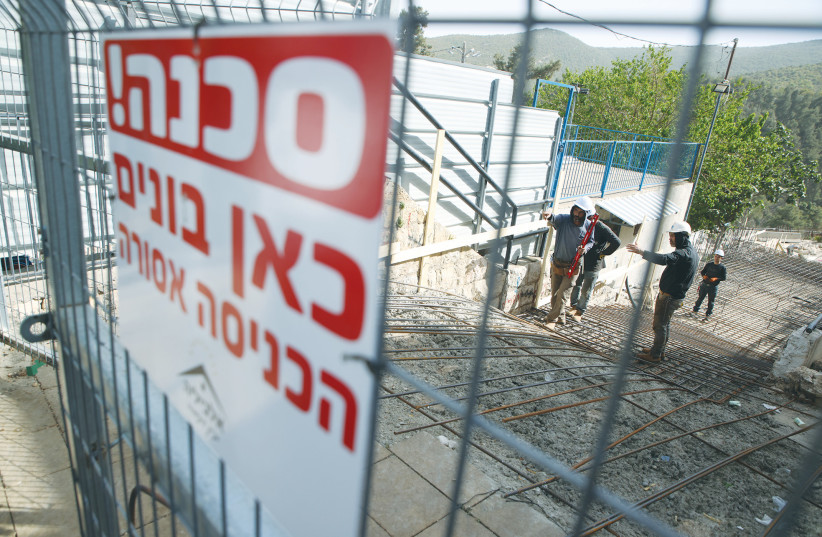“I didn’t know there were unsafe structures on [Mount] Meron,” former interior minister Eli Yishai told the Mount Meron state commission of inquiry Tuesday
His testimony started a new round of the inquiry. Several other politicians, including former public security minister Amir Ohana and former interior minister Arye Deri, are expected to testify in the coming weeks.
Yishai said he had tried to institute changes and reforms, but there is no record that he approved any plans.
Questioned why that was the case, Yishai said he did not approve new plans because the professionals involved in the deliberations opposed some of the changes he wanted.
So far, much of the blame has fallen on some extremist hassidic sects that operated in a very informal manner.
The Religious Services Ministry was seemingly manipulated by these sects and was also blamed.

Engineers who authorized the paths, bridges and structures on the mountain, even though they were unsafe, were also criticized.
But there also has been significant infighting and pointing of fingers among the top echelon of the police.
On April 11, Israel Police Insp.-Gen. Kobi Shabtai attempted to shift responsibility for the tragedy to Israel Police Northern District Chief Shimon Lavi and to Amnon Alkalay, was police operations commander at the time and is a fierce critic of Shabtai.
Despite senior police officers’ recommendation to restrict the crowd at each bonfire, Shabtai had outright rejected it, Alkalay testified.
“[Shabtai] said: ‘Either the mountain is completely open or closed,’” he said. “I warned them to prepare for a multi-casualty incident.”
During the preparatory meeting for the incident, “the chief said: ‘If there is a commission of inquiry, you can put it on me,’” Alkalay said.
Shabtai rejected Alkalay’s testimony.
The decision on the format of the restrictions was transferred to the political echelon because “it is not the police who are authorized to decide whether there will be restrictions,” he said.
Ohana and Deri were the politicians most involved at the time. Ohana accepted responsibility but said, “Responsibility does not mean guilt.”
Lavi said he took general responsibility since he was the commander on the ground and of the district where the tragedy took place.
Lavi, Shabtai and many other officials have blamed the political echelon for pressuring them into allowing far too many visitors onto the mountain than what was safe.
All the officials complained that politicians had been afraid to confront the hassidic sects that controlled parts of the mountain, as well as the United Torah Judaism and Shas parties, which demanded no restrictions on the number of participants in the festivities.
